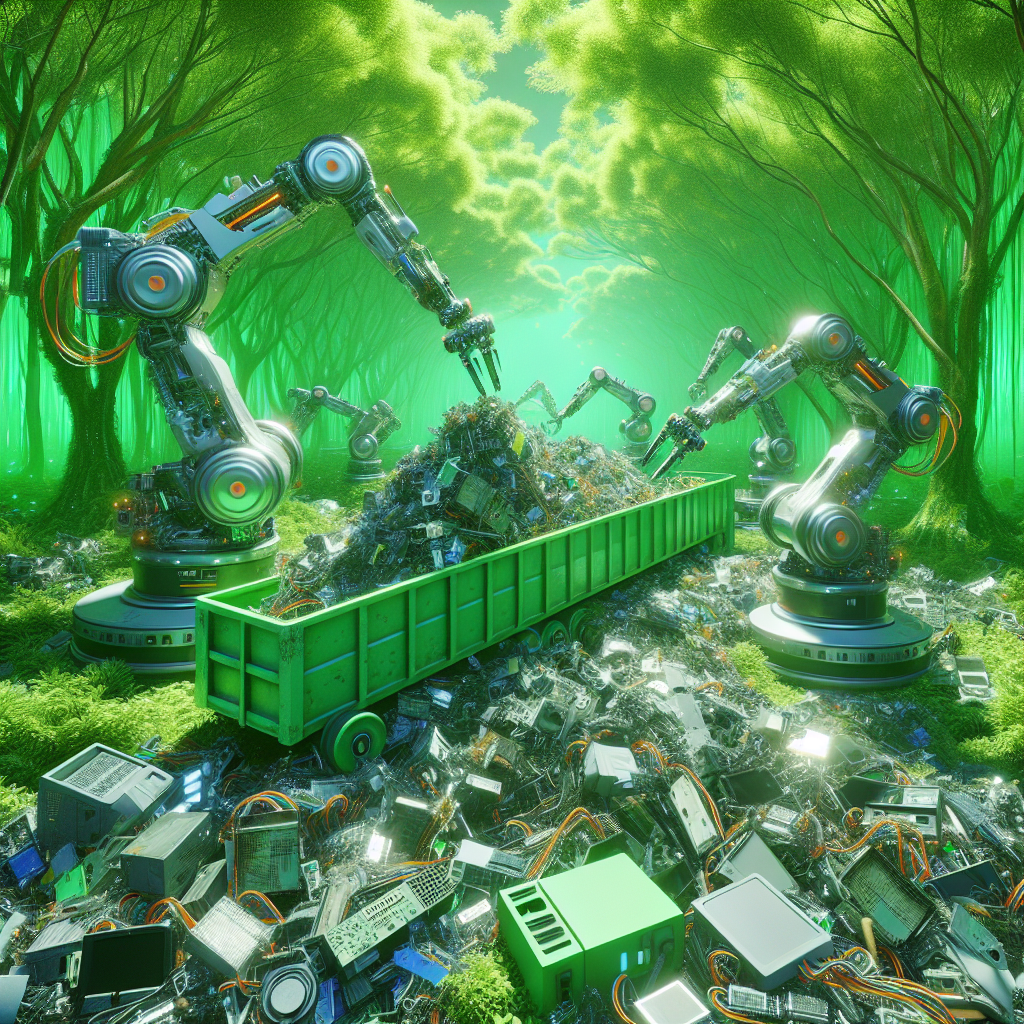Blog Ecobraz Eigre

AI and the environment: the new frontier in e-waste recycling
Introduction to Electronic Waste Recycling
The management of electronic waste is one of the biggest environmental challenges of the 21st century. With the constant increase in the consumption of electronic devices, efficient recycling becomes essential to minimize negative impacts on the environment. Artificial intelligence (AI) is emerging as a revolutionary technology to transform recycling processes, offering innovative solutions to identify, separate and reuse electronic components.
The Role of Artificial Intelligence in Recycling
Artificial intelligence can analyze large volumes of data from e-waste to optimize sorting and processing. Systems based on machine learning are able to identify recyclable materials with greater precision, reducing contamination of recycled batches. In addition, AI helps automate processes that were previously manual and laborious, such as the disassembly of equipment.
Efficient Detection and Separation of Materials
Robots equipped with computer vision and intelligent sensors use AI to recognize different types of components, such as precious metals, plastics and circuits. This technology makes it possible to separate materials more quickly and appropriately, increasing the amount of waste reused and decreasing rejects. Efficient separation contributes to the circular economy by reducing the extraction of virgin raw materials.
Preventing Environmental Damage
In addition to improving recycling efficiency, AI can also predict and prevent environmental damage caused by the incorrect disposal of e-waste. Predictive models analyze data on disposal sites, movement and waste composition, identifying risk areas and suggesting actions to mitigate impacts. This makes the waste collection and treatment process safer for the environment.
Challenges and Future Prospects
While the application of AI in e-waste recycling has numerous benefits, there are still challenges to overcome. The complexity of the devices, the diversity of materials and the high initial cost of the technologies limit their use on a large scale. However, with the constant evolution of AI tools and cost reductions, these solutions are expected to become increasingly accessible, driving more sustainable and efficient recycling.
Conclusion
The integration of artificial intelligence into e-waste recycling processes represents a new frontier in environmental protection. By enabling more precise sorting, automating disassembly and predicting environmental impacts, AI strengthens the circular economy and reduces the damage caused by improper disposal. Investing in smart technologies is key to tackling the e-waste challenge and ensuring a more sustainable future.

Deixe um comentário
O seu endereço de e-mail não será publicado. Campos obrigatórios são marcados com *